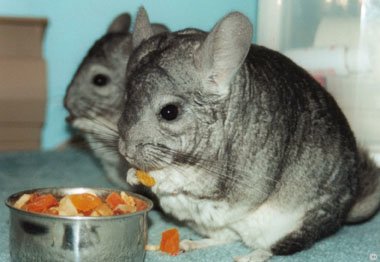 Chinchilla nutrition is paramount to a chinchilla's health and longevity! Most health problems stem from an owner providing incorrect nutrition, which can be avoided with good education.
Chinchilla nutrition is paramount to a chinchilla's health and longevity! Most health problems stem from an owner providing incorrect nutrition, which can be avoided with good education.
Chinchillas are herbivores (plant eating animals) and in the wild their diet would be bland, feeding off seeds, roots, leaves, fruits, berries, bark, alfalfa and various grasses, all of which contain a high percentage of fibre.
In captivity, many chinchilla owners do not take into consideration a chinchilla's sensitive digestive tract and substitute a chinchilla's basic diet with lots of treats and pellets that contain other food items or are made for other animals (such as rabbits or guinea pigs). These owners then wonder why their chinchilla will not eat their standard chinchilla pellets or are experiencing the onset of health issues early in life.
In captivity, chinchillas thrive when they are given a properly balanced diet of concentrates (pellets) and roughage (hay). A diet consisting mainly of pellets is unsatisfactory and diets, which include re-cooked foods such as rolled oats, shredded wheat, puffed wheat etc are also detrimental. Like-wise the feeding of peanuts or raisins must be avoided although the odd raisin can be offered but usually too many are generally given.
A chinchilla's diet should consist of 30% fibre, 14-16% protein, 35% carbohydrate, 3.5% fat and oil, 4% sugar, 6% minerals and 10% moisture/trace element, 32.400 Vitamin D, 14.000 Vitamin A, 80 Vitamin E. (Kennedy 1970). Anything other than this will have effects on a chinchilla's health.
Plant proteins are necessary for a chinchilla to aid in proper fur production, not only the growth but also the strength and quality of the fur all depend upon the presence of plant protein in the diet. Protein should come second to fibre in a chinchilla's diet. A low protein diet produces unthrifty-appearing chinchillas, this is often manifested by dry, faded, weak and fragile fur. Kinky, wavy and 'cotton' fur may also be caused by dietary deficiencies (however, inheritance may also have an influence).
Fibre has a serious role within the chinchilla's digestive track as the gut needs continual movement and should be placed at the top of the nutrition list. Saying this, fibre needs to be provided in the correct proportions to avoid over feeding and causing the onset of diarrhoea, bloat and/or other digestive disorders.
Appropriate nutritional values can be achieved by offering a variety of good quality coarse hay, good quality pellets made only for chinchillas and water that has been boiled and left to cool. Proving you offer a healthy diet with the correct nutritional quantities, you should not need to supplement a chinchilla (as this can throw out the nutritional calculations). Saying this, there are times when a chinchilla will need supplementation so it has been included briefly in this section.
Chinchilla Hay
 Alfalfa, alpine, timothy, orchard grass, the blue grasses and the common prairie grass are the most satisfactory for feeding chinchillas. The quality of the hay/grasses plays more importance than the quantity of hay you provide. The amount of plant protein required ranges from 14-16% and any great variation above or below these amounts is unsatisfactory, for example a diet beyond 21% will cause serious health troubles. Timothy hay contains approximately 6-8% protein and alfalfa hay (of good grade) contains about 14% protein. Alfalfa also contains a substance that is effective in the repair of damaged live cells, which will help towards a chinchilla's longevity. Hay mixtures such as those containing orchard grass, blue grass, timothy and alfalfa, make a satisfactory feed and should be available at all times.
Alfalfa, alpine, timothy, orchard grass, the blue grasses and the common prairie grass are the most satisfactory for feeding chinchillas. The quality of the hay/grasses plays more importance than the quantity of hay you provide. The amount of plant protein required ranges from 14-16% and any great variation above or below these amounts is unsatisfactory, for example a diet beyond 21% will cause serious health troubles. Timothy hay contains approximately 6-8% protein and alfalfa hay (of good grade) contains about 14% protein. Alfalfa also contains a substance that is effective in the repair of damaged live cells, which will help towards a chinchilla's longevity. Hay mixtures such as those containing orchard grass, blue grass, timothy and alfalfa, make a satisfactory feed and should be available at all times.
Hay must be stored correctly in a dry, well ventilated place. Any hay, grasses of legumes that have been exposed to dampness or have started fermenting must be disregarded as deadly toxins will have starting developing in them - always check the hay you provide to ensure no moulds or fungi have begun to form, if so, throw away and replace with new.
Hay has another importance to a chinchilla as it helps grind down the back molars keeping them in good length and preventing tooth disorders. A good quality 'coarse' hay takes a long time to grind down before the chinchilla can swallow it, therefore the extra side-to-side grinding motion needed to break down the substance gives extra filing on the back teeth.
Chinchilla Pellets
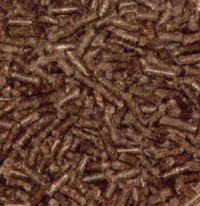 Chinchillas generally consume approximately 1-2 tablespoons (20 grams) of pellets per day and will never overeat so for this reason alone, a chinchilla must always have both pellets and hay available at all times.
Chinchillas generally consume approximately 1-2 tablespoons (20 grams) of pellets per day and will never overeat so for this reason alone, a chinchilla must always have both pellets and hay available at all times.
Chinchilla pellets are alfalfa based with extra vitamins and minerals added and should not be replaced with a brand made for other animal species such as rabbit or guinea pig! Pellets made for other animals have been created to incorporate all the nutrition these specific animals need, which differs from the chinchilla. On another serious note - pellets made for other animal species can have hormones added, which will also undoubtedly effect a chinchilla's health early in life.
Chinchillas are selective eaters and will pick out tasty items and leave their basic pellets if they can and this should always be remember when feeding a chinchilla!. Charlie Chinchilla is a particular culprit, including lots of extras within its pellets (raisins included) and a chinchilla will seriously overeat on these extras causing them to become fussy eaters, missing vital nutrition and causing the onset of health issues.
Chinchilla pellets should not contain fish oils unless cholene and vitamin K are added to the diet to assist the chinchilla's liver in metabolizing the fish fat and never should they contain yeast! Usually most brand chinchilla pellets contain sufficient vitamins for the normal chinchilla but in some instances vitamin supplements are required (under the supervision of your veterinary surgeon).
Nutritional values can vary between brand names and you should aim between 14-16% fibre and protein with the importance focusing on fibre. Nutritional intake over 20% can be 'too rich' for some chinchillas and will cause the faeces to become soft and mushy as well as causing gastrointestinal problems.
 Water
Water
Chinchillas need a fresh supply of water daily and can consume between 15-40mls per day. Never use water directly taken from a tap, as tap water contains chemicals to keep the water clean and drinkable, which over time will effect a chinchilla's health.
Water should always be filtered or distilled. The best thing to do is simply boil some water and allow it to cool completely before offering it to a chinchilla.
Chinchillas have the ability to retain water in their fur and tail and do not seem to drink that much but it is still essential they are provided fresh water daily.
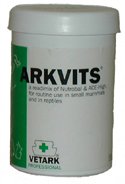 Chinchilla Supplements
Chinchilla Supplements
Over supplementation can be fatal to a chinchilla so please do not start adding supplements if you don't know what you ar dong or are unsure! Providing you offer a chinchilla a healthy diet of chinchilla pellets, a variety of coarse hay/grasses, fresh water daily and only 1-2 safe treats a week, you should not need to supplement a chinchilla's diet.
The only time you will really need supplementation is during pregnancy, when a chinchilla is ill and if a chinchilla is exposing calcium deficiencies.
More can be read about supplementation on the following page....
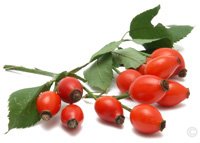 Chinchilla Treats
Chinchilla Treats
It is tempting to offer a chinchilla treats as they are so cute and adorable but even though a chinchilla will not overeat on pellets the same cannot be said for treats!
A chinchilla WILL overeat treats, which causes a fatty liver (amongst other health issues) and death!
At times of training, safe treats (1-2 per week) can be offered but only if they do not interfere with the chinchillas overall nutritional values. Remember a chinchilla's diet should consist of no more than 3.5% fat! A raisin (as small as it may look) contains 70% sugar and since a chinchilla should have no more than 4% of sugar in a day, you can see how bad raisins are! You must also remember to add the nutritional values of the treat to what the chinchilla has already consumed through its pellets and hay (as it is all accumulative!).
There are some treats you can offer to a chinchilla these are...

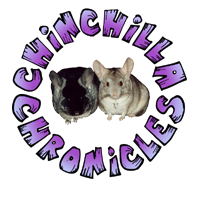
 Chinchilla nutrition is paramount to a chinchilla's health and longevity! Most health problems stem from an owner providing incorrect nutrition, which can be avoided with good education.
Chinchilla nutrition is paramount to a chinchilla's health and longevity! Most health problems stem from an owner providing incorrect nutrition, which can be avoided with good education. Alfalfa, alpine, timothy, orchard grass, the blue grasses and the common prairie grass are the most satisfactory for feeding chinchillas. The quality of the hay/grasses plays more importance than the quantity of hay you provide. The amount of plant protein required ranges from 14-16% and any great variation above or below these amounts is unsatisfactory, for example a diet beyond 21% will cause serious health troubles. Timothy hay contains approximately 6-8% protein and alfalfa hay (of good grade) contains about 14% protein. Alfalfa also contains a substance that is effective in the repair of damaged live cells, which will help towards a chinchilla's longevity. Hay mixtures such as those containing orchard grass, blue grass, timothy and alfalfa, make a satisfactory feed and should be available at all times.
Alfalfa, alpine, timothy, orchard grass, the blue grasses and the common prairie grass are the most satisfactory for feeding chinchillas. The quality of the hay/grasses plays more importance than the quantity of hay you provide. The amount of plant protein required ranges from 14-16% and any great variation above or below these amounts is unsatisfactory, for example a diet beyond 21% will cause serious health troubles. Timothy hay contains approximately 6-8% protein and alfalfa hay (of good grade) contains about 14% protein. Alfalfa also contains a substance that is effective in the repair of damaged live cells, which will help towards a chinchilla's longevity. Hay mixtures such as those containing orchard grass, blue grass, timothy and alfalfa, make a satisfactory feed and should be available at all times. Chinchillas generally consume approximately 1-2 tablespoons (20 grams) of pellets per day and will never overeat so for this reason alone, a chinchilla must always have both pellets and hay available at all times.
Chinchillas generally consume approximately 1-2 tablespoons (20 grams) of pellets per day and will never overeat so for this reason alone, a chinchilla must always have both pellets and hay available at all times.

